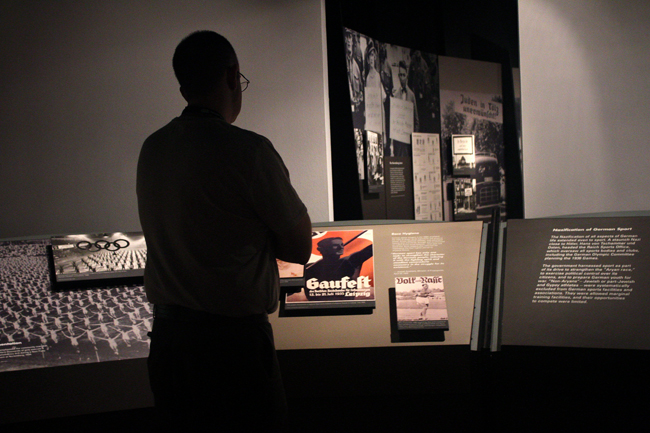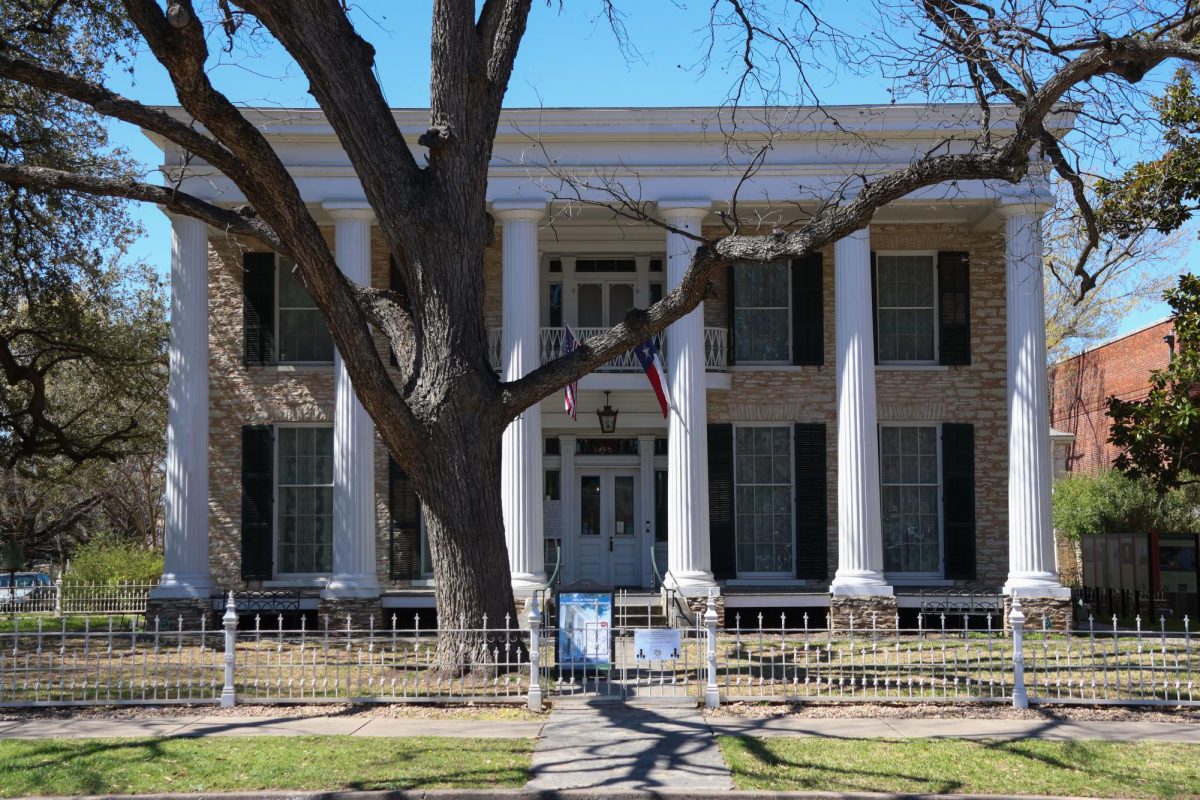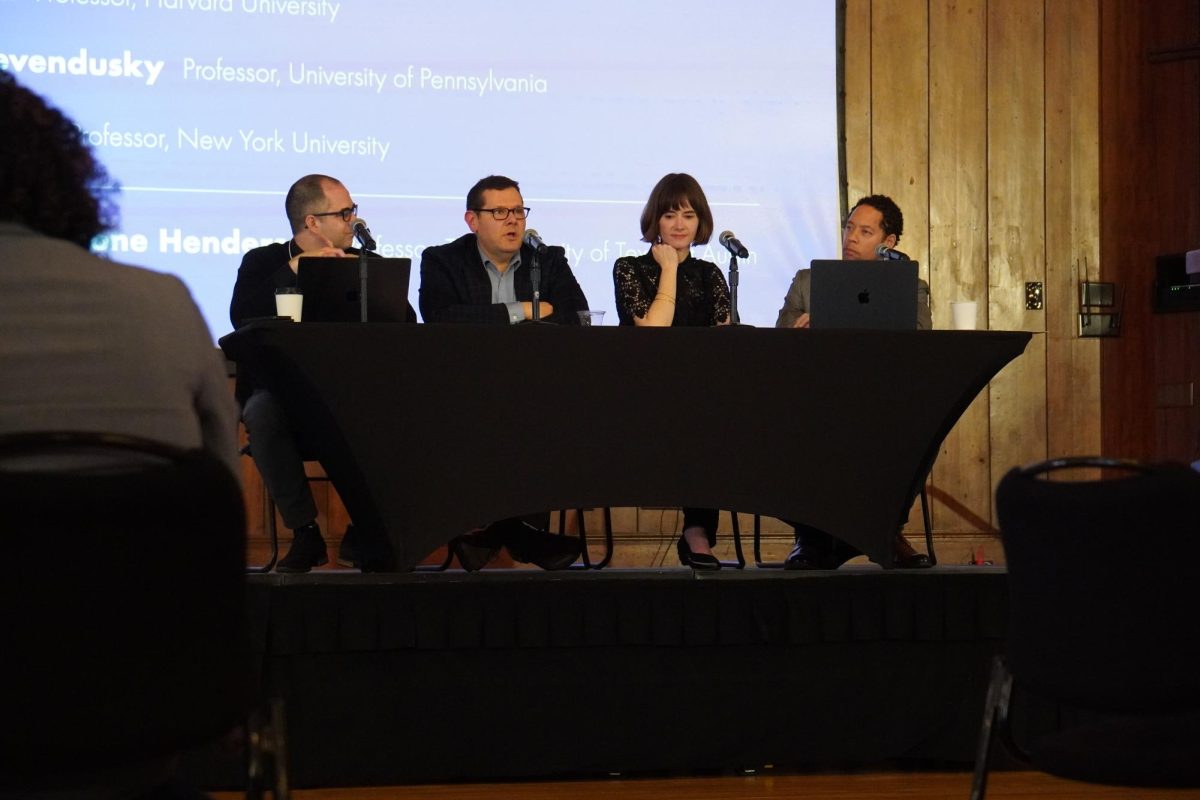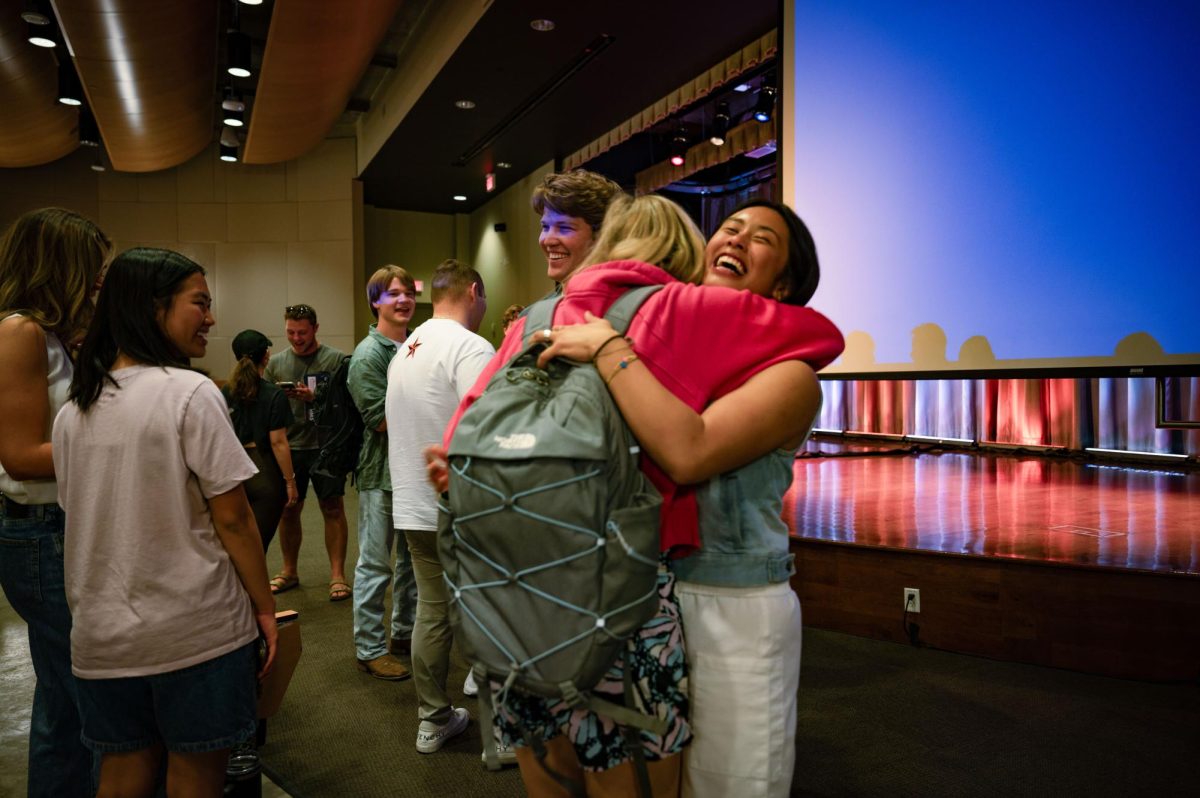“Nazi Olympics: Berlin 1936,” a traveling exhibition created by the United States Holocaust Memorial Museum, will be at the University of Texas Stark Center until the end of January in advance of the 2016 Olympics in Rio de Janeiro.
A specialist from the United States Holocaust Memorial Museum in Washington, D.C., came to supervise the exhibition setup at UT.
“It takes up about [4,000–5,000] square feet in our gallery space,” said Terry Todd, director of the Stark Center. “It took about a week to set it up. We have many other things we feature as well, but we took down that much space to accommodate this exhibition.”
UT and the United States Holocaust Memorial Museum in Washington, D.C., partnered up to make the exhibition possible.
“This has been to other places, and campaigned in other cities, but it’s never been here before, and we were pleased to have it and have it so soon for the Olympic games,” Todd said. “It’s going to be seven days a week from 9 until 5. And there’s no charge for it; it’s free.”
The exhibition includes footage from the Berlin games, testimonials from Jewish athletes who were banned from competing, photo galleries and a timeline of the events preceding the 1936 Summer Olympics. It also examines the way Germany exploited the games for propaganda uses.
“Berlin 1936 is a traveling exhibition that was created by the United States Holocaust Memorial Museum in 1996,” said Rena Opert, the traveling exhibition manager. “It was curated by one of our special exhibition curators, Susan Bachrach.”
After Austin, the exhibition will go to the Illinois Holocaust Museum and Education Center in Skokie, Illinois.
According to the exhibit, multiple countries and independent groups tried to boycott the 1936 Olympics because of Germany’s strong anti-Semitism. An alternative to the games was to be hosted in Barcelona but was canceled at the last minute because of the Spanish Civil War.
“Ever since that Olympic games happened, it was very controversial, and there was a strong movement to boycott the games,” Todd said. “It’s a shame that it was not boycotted because Germany didn’t deserve to have it.”
Adolf Hitler, initially uninterested in the games because they promoted internationalism, was convinced by his officials that the games were an opportunity to bring Germany back to the world stage. The games were also used to promote propaganda about Germany’s humane treatment of their Jewish citizens.
“As it happened, [German officials] were able to claim, ‘Look, Germany is a good place, a nice place, well-run and we put on a great Olympic games,’” Todd said. “But of course they were not able to show Aryan superiority, which is one of the foundations of the Nazi regime.”
The exhibit comes to the Stark Center to commemorate the 80th anniversary of the Berlin 1936 Olympic games. The exhibit is a display of how far the Nazi regime went to disguise the true nature of their actions.
“As time passed, it gave a lot to what they were, in effect, masquerading: a humane regime, when they were building concentration camps within thirty or forty miles of Berlin as the games were taking place,” Todd said. “So ever since, because it was such a classic clash of cultures and beliefs, it’s strung the attention of scholars who study sports and subjects such as racism, and it continues to be a lightning rod even now, eighty years later.”
Correction: An earlier version of this article misstated the size of the exhibit and its reason for coming to UT. It has since been updated.





















